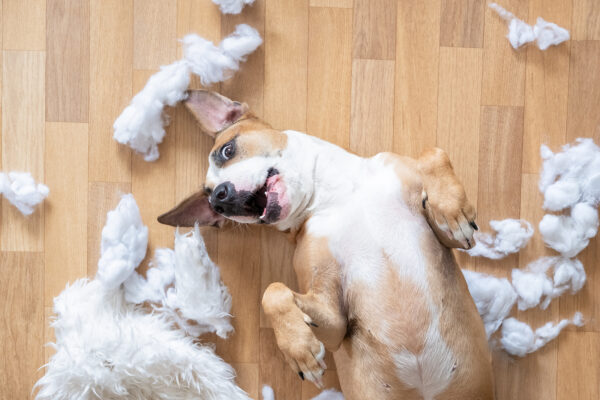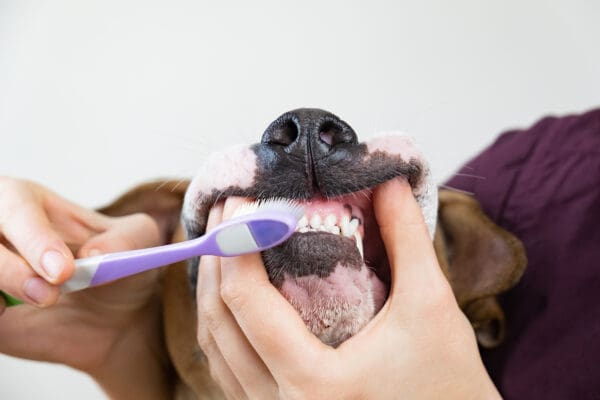
11401 NE 195th St. Bothell, WA 98011
(425) 486-9000 PHONE (425) 486-9002 fax
Natural History
The guinea pig (Cavia porcellus) is a descendent of the wild cavies that live in the Andean region of South America. Domestication of these personable rodents began as early as 5000 BC by South American tribesmen. Eventually, Spanish, Dutch, and English traders brought guinea pigs to Europe, where they were sold as exotic pets for upper class citizens.
Despite the confusion in the name, guinea pigs are not pigs, and did not originate from Guinea or Papua New Guinea. Many owners prefer to call them cavies instead, after their scientific name. Most guinea pigs live 5-8 years in captivity (although the oldest guinea pig ever recorded lived 14 years, 10 months!).
Husbandry
Housing: Guinea pig cages must be large enough to provide enough room for exercise and play. Each guinea pig should have at least 30” x 36” of floor space in their enclosure. Cage walls should be 10” in height, and cage flooring should be solid, not wire. Appropriate bedding for cavies includes fleece blankets, recycled paper products such as Carefresh, and/or hay/straw. Wood shavings should be avoided, as their aromatic nature can cause respiratory illnesses in small animals.
Because guinea pigs are highly social animals, we strongly recommend keeping them in pairs. Males should be neutered and females should be spayed to prevent reproduction. Un-neutered males should not be housed together, as they may fight.
Exercise: Guinea pigs benefit from frequent enrichment inside their cages. Appropriate toys include seesaws, solid-floor ramps, and foraging material. Change the cage layout occasionally to prevent boredom, and hide guinea pig-appropriate treats or chews throughout the cage to encourage exploration.
Diet
Hay/Pellets: A guinea pig’s daily diet should primarily consist of grass hay, such as timothy or orchard grass, which they should have access to at all times. Guinea pigs should receive about 2 tablespoons of high quality guinea pig pellets (Mazuri or Oxbow brand) per day. Limiting the amount will train them to rely more on hay for food, which is very important for digestive health and proper tooth management. Any dietary changes should be gradual to prevent complications. Consult a veterinarian before changing the diet.
Fresh foods: The total amount of fresh foods should not exceed ¼ of a cup per guinea pig per day. Green leafy vegetables such as romaine, bok choy, red/green leaf lettuce, parsley, carrot tops, chicory, cilantro, and dandelion greens are appropriate. Tomatoes and bell peppers are also good snacks for cavies. Kale and spinach should be given in limited amounts. Fruits such as apples, oranges, and kiwi should be given very sparingly, as these sugar-rich foods can cause gastrointestinal upset.
Vitamin C: Guinea pigs, like humans, are unable to produce their own Vitamin C, and can suffer from deficiencies if their diet does not contain adequate amounts of this vital nutrient. Without Vitamin C supplementation, guinea pigs can develop scorbutus, also known as scurvy, which can lead to dental problems, joint damage, and systemic disease. Although guinea pig pellets usually have vitamin C added, it can degrade after the pellets are manufactured depending on the conditions in which they are stored. Always check the expiration date on the bag of pellets prior to purchase, and make sure that you are feeding a pellet that has a stabilized version of vitamin C (such as Oxbow).
Good sources for additional vitamin C supplementation include:
- Bell peppers, parsley, cilantro, small pieces of orange
- Oxbow’s Natural Science Vitamin C chewable supplement
We do not recommend using Vitamin C supplements that are added to water sources, as they may encourage bacterial growth in the water, may decrease your guinea pig’s water consumption, and usually do not contain a stabilized form of Vitamin C.
Handling
When picking up a guinea pig, approach from the side instead of from above and be sure your movements are slow and gentle. Scoop them up underneath their chest and abdomen, and support their back legs in order to provide them with a sense of security. Guinea pigs regularly enjoy being petted along the neck and back. Solitary guinea pigs require significant amounts of extra attention from their humans, as guinea pigs are very social animals and are happiest when kept in pairs.
Common Medical Issues
ANY abnormal symptom in a guinea pig could be an emergency, as they tend to hide signs of illness until they are extremely sick. Please contact your exotic veterinarian immediately if you notice any changes in your guinea pig’s attitude, appetite, or activity level.
NOTE: there are several types of medications that are dangerous to give to guinea pigs, so always consult with an exotic animal veterinarian before giving your guinea pig any treatments.
- Dental disease: – This is one of the most common health problems for guinea pigs, and may be caused by a genetic predisposition, or by improper diet. Symptoms include drooling, pawing at the mouth, weight loss, and not eating. Dental disease is painful, and needs medical attention as soon as possible.
- GI Stasis: Guinea pigs they are designed to eat all throughout the day and produce a constant supply of stools. When a guinea pig stops eating and stops producing stools, this is often a sign of serious underlying medical issues. GI stasis can be caused by a myriad of problems, including respiratory illness, dental disease, organ dysfunction, infections, and toxin exposure. Any guinea pig that has stopped eating for 12 hours or more should be seen by an exotics veterinarian immediately.
- Respiratory distress: Respiratory infections are somewhat common in guinea pigs, and can be fatal if not treated promptly. Sneezing, coughing, and nasal or ocular discharge are the first signs of respiratory illnesses in cavies, and should be addressed immediately.
- Scurvy: Scorbutus, or scurvy, can manifest itself through lethargy, loss of appetite, diarrhea, nasal discharge, lameness, and hemorrhage. It is imperative that vitamin C be provided on a regular basis to prevent the occurrence of scurvy. Any guinea pig exhibiting possible scurvy symptoms should be seen by an exotic veterinarian as soon as possible.
March 30, 2015
Content of this Care Sheet Courtesy of:
The Center for Bird and Exotic Animal Medicine
11401 NE 195th St. Bothell, WA 98011
(425) 486-9000 PHONE (425) 486-9002 fax



